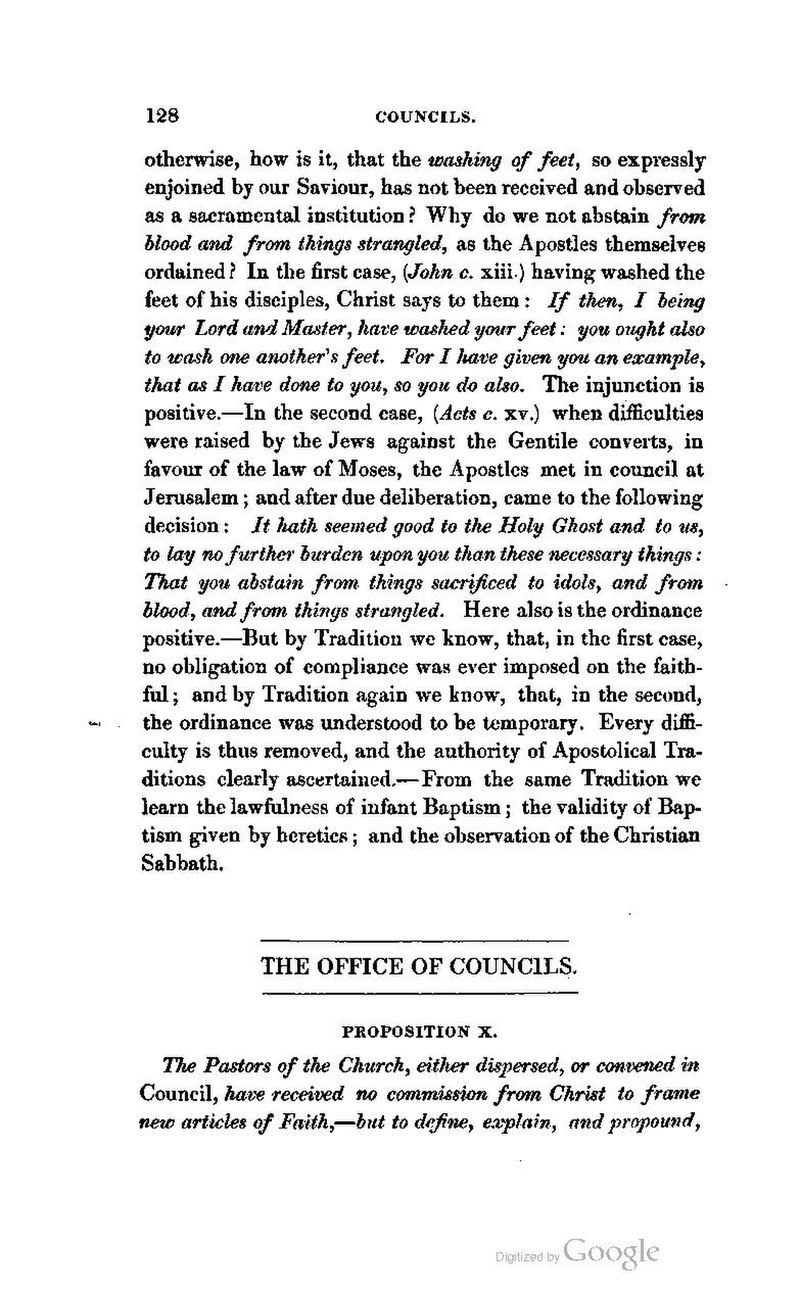otherwise, how is it, that the washing of feet, so expressly enjoined by our Saviour, has not been received and observed as a sacramental institution? Why do we not abstain from blood and from things strangled, as the Apostles themselves ordained ? In the first case, (John c. xiii.) having washed the feet of his disciples, Christ says to them: If then, I being your Lord and Master, have washed your feet: you ought also to wash one another's feet. For I have given you an example, that as I have done to you, so you do also. The injunction is positive. In the second case, (Acts c. xv.) when difficulties were raised by the Jews against the Gentile converts, in favour of the law of Moses, the Apostles met in council at Jerusalem; and after due deliberation, came to the following decision: It hath seemed good to the Holy Ghost and to us, to lay no further burden upon you than these necessary things : That you abstain from things sacrificed to idols, and from blood, and from things strangled. Here also is the ordinance positive.—But by Tradition we know, that, in the first case, no obligation of compliance was ever imposed on the faithful; and by Tradition again we know, that, in the second, the ordinance was understood to be temporary. Every difficulty is thus removed, and the authority of Apostolical Traditions clearly ascertained.- From the same Tradition we learn the lawfulness of infant Baptism ; the validity of Baptism given by heretics; and the observation of the Christian Sabbath.
THE OFFICE OF COUNCILS.
PROPOSITION X.
The Pastors of the Church, either dispersed, or convened in Council, have received no commission from Christ to frame new articles of Faith, but to define, explain, and propound, to the faithful, what anciently was, and is, received and retained, as of Faith in the Church, when debates and controversies arise about them. These definitions, in matters relating to faith only, and proposed as such, oblige all the faithful to a submission of judgment.
